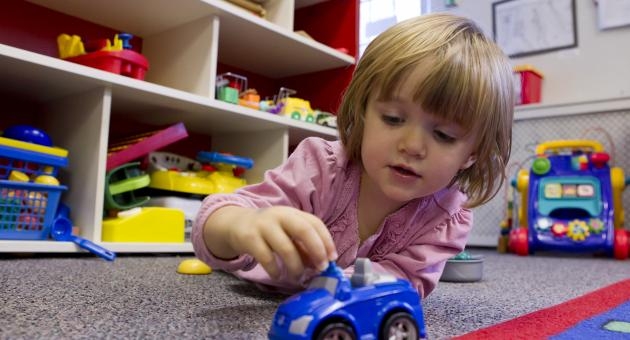Babies prefer it when bad guys get their due, study suggests

Babies embrace nice characters over those who are bad. That's according to a new study co-authored by Temple psychology postdoctoral fellow Neha Mahajan with Kiley Hamlin of the University of British Colombia and Karen Wynn and Paul Bloom of Yale.
Previous research had shown that, across the board, babies prefer kind acts. The new study, supported by a grant from the National Institutes of Health and published in November in the Proceedings of the National Academy of Sciences, suggests that infants support negative behavior if it is directed at those who are behaving badly, and they dislike those who are nice to villains.
"The study suggests that an early endorsement of punishment, possibly a precursor of morality, appears at a very young age," said Mahajan.
“We find that, by eight months, babies have developed nuanced views of reciprocity and can conduct these complex social evaluations much earlier than previously thought,” said lead author Hamlin.
For the study, researchers presented four scenarios to 100 eight-month-old infants using animal hand puppets. After watching puppets act negatively or positively toward other puppets, the babies were shown puppets either giving toys to or taking toys from these “good” or “bad” puppets.
When prompted to choose their favorite characters, babies consistently preferred puppets that mistreated the bad characters from the original scene, compared to those that had treated them kindly.
"'We manipulated the identities of the puppets to ensure that the babies weren't really just showing a preference for a particular puppet, such as a moose with a green shirt or a moose with an orange shirt," explained Mahajan.
Then the researchers took the study a step further.
They examined how older infants, aged 21 months, would themselves treat good and bad puppets. For this part of the study, the researchers asked 64 babies to give a treat to or take a treat away from one of two puppets: a puppet who had previously been observed helping another puppet and a puppet who had been observed harming another puppet.
"These older babies physically took treats away from the “bad” puppets and gave treats to the “good” ones," said Mahajan.
She says the findings provide evidence that babies have intuitions that correspond to adult notions of reward and punishment.
"They act positively toward those characters who are behaving in socially acceptable ways and negatively toward those who appear to be acting antisocially. And, quite early in life even infants are making relatively complex social judgments," she said.